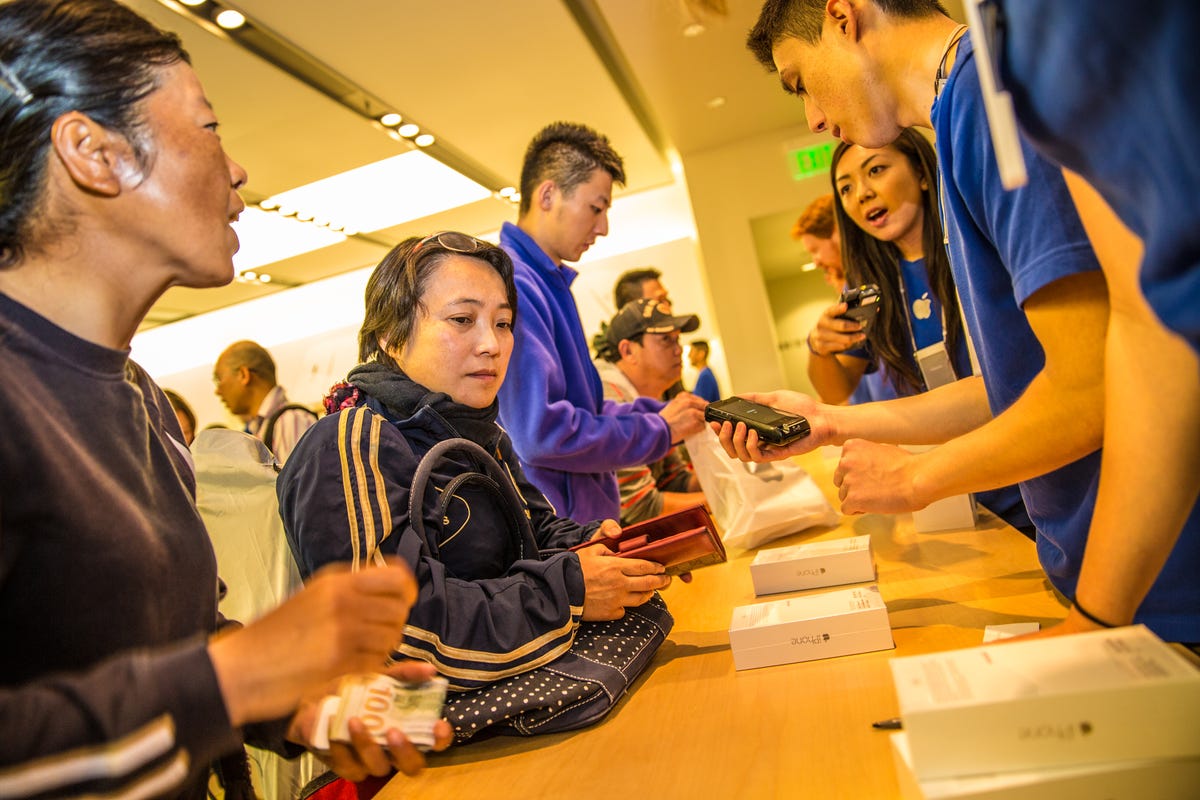
James Martin/CNET
AT&T is slowly saying farewell to the idea of service contracts and smartphone subsidies.
The nation’s second-largest wireless carrier on Monday began its push to get its retail partners and authorized third-party retailers to switch to only offering Next, its program that requires customers to pay for their own smartphones through a monthly fee. Retail partners such as Apple and Best Buy plan to phase out the option for subsidies and contracts, but that timing for each partner remains up in the air, according to an AT&T spokeswoman.
The move is part of a broader shift in how consumers are paying for their smartphone service. In the past, customers would sign a contract in exchange for a discounted smartphone, but end up paying a higher service fee each month. With Next, customers pay a lower service fee, but also chip in an additional fee to cover the full cost of the device. The result has been heightened awareness over how much smartphones actually cost.
For example, an iPhone 6 starts at $199 with a two-year contract, which obscures its full price of $650. Under Next, customers pay off that amount in monthly increments, and can choose different lengths, such as 18 or 24 months.
AT&T will still offer the traditional service contract at its own stores or through its website, a spokeswoman said.
AT&T has enthusiastically jumped on the new trend, which was originally kicked off by T-Mobile when it eliminated contracts and subsidies more than two years ago. The company said it added 4.1 million subscribers to the Next program in the first quarter — representing a majority of its customer additions. More than 30 percent of its base is on the Next program.
The move comes as Verizon made a subtle shift to its own smartphone payment program, Edge. Last week, Verizon said that customers would have to pay off the entire cost of their smartphone before they could upgrade. Previously, you only needed to pay off 75 percent of the cost before you could switch to a new smartphone.
Updated at 1:10 p.m. PT: To clarify the timing on when the retail partners will drop the subsidy option.



